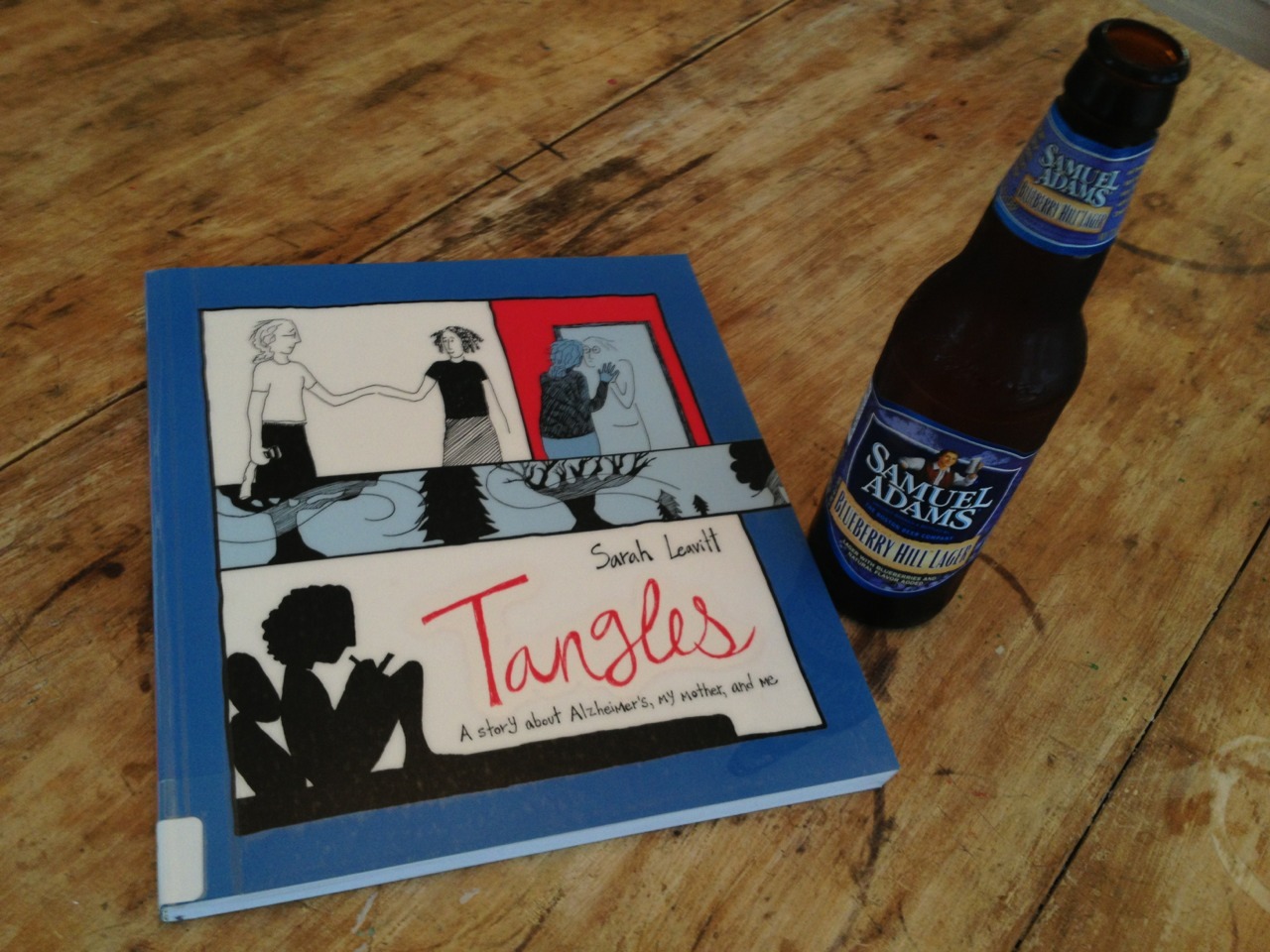Tangles is simply awash in tiny details, thanks to Leavitt's coping mechanism of recording, in words and pictures, hundreds (thousands?) of observations of--and quotations from--her rapidly changing mother. The book's first-person narration of these tiny details seems to beg the question, Was this person who talked to broccoli still the mother who raised my sisters and I, the woman so engaged in education, the wife so loving and loved? The answer seems to be "Yes and no," of course. There's still a core of the Midge that we're introduced to in the book's preliminary, historical sections, but there's also a new person, one who sings to herself (no longer with her sisters) while being bathed or who writes ungrammatical notes to her daughter.
As a cartoonist, Leavitt draws in an unadorned, highly simple--even simplistic--style. I at first thought the style too simple but eventually recognized it as direct and honest. The book is a chronicle of Leavitt's feelings and impressions as much as it is a record of specific events, and I think a more highly rendered style would only serve to fetishize the events and overpower her impressions.
The book's large, square pages are generally constructed of five tiers of gutterless panels, leading to a dense reading experience; a lot happens on each page, and Sarah, our narrator, is often at a loss in trying to make sense of it all. How can you make sense of that which so often, by definition, is nonsensical? Such as the note from Midge to Leavitt's partner Donimo, which Leavitt reproduces, isolated in the corner of an otherwise blank page: "Love to Donimo / Hope you like Bmdows. / See you soon / family is / The whole / eags to see you / from Midge" (page 69).
The book is peppered with such large, nearly empty pages, falling in between some of the short, dense chapters. They often highlight quotations from Midge, or simple, striking moments: Actions divorced from time and context, much like Midge's perception of the world around her. Because it is so honest, Tangles is sometimes not an easy book to read. But it is a powerful one.
Tangles: A Story about Alzheimer's, My Mother, and Me
by Sarah Leavitt
Skyhorse Publishing, 2012
ISBN-10: 1616086394
ISBN-13: 978-1616086398
128 pages, $14.95


